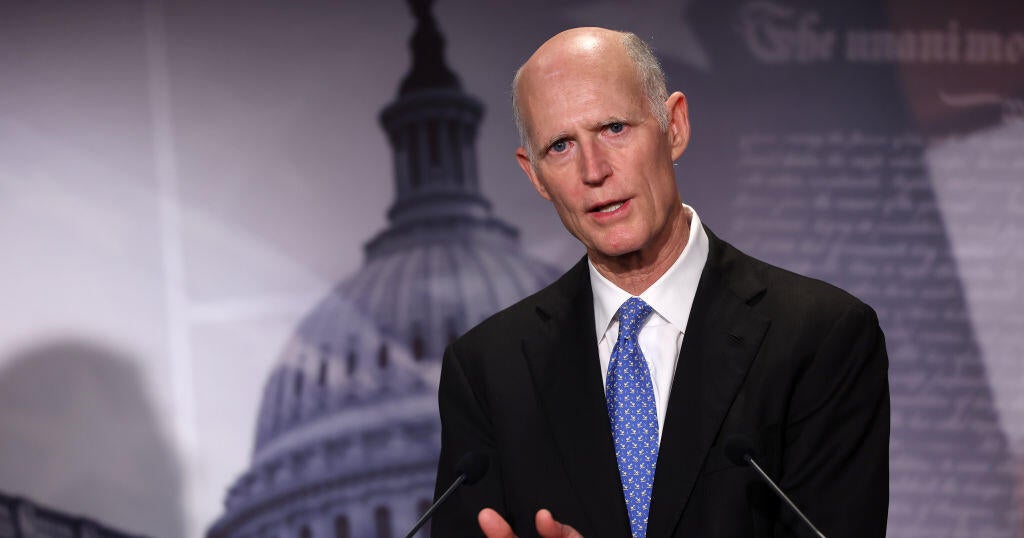Congressional Democrats, GOP moderates look to enshrine LGBTQ legal protections
Almost four years after the Supreme Court legalized same-sex marriage nationwide, Democrats and several Republican moderates on Capitol Hill are set to push for new legislation that would enshrine legal protections for LGBTQ Americans.
The Equality Act, which was reintroduced Wednesday by Oregon Democratic Sen. Jeff Merkley after several previous attempts at passage failed, amends the Civil Rights Act of 1964 to prohibit discrimination due to sex, sexual orientation, and gender identity.
"Freedom is the ability to fully participate in American life," said Senator Merkley. "It is way past time to fully open the doors of opportunity for every American."
Sen. Susan Collins, a moderate Maine Republican, is co-sponsoring the legislation. In the House, Rep. Brian Fitzpatrick, a Republican who represents the Philadelphia suburbs, and Rep. John Katko of New York, will also co-sponsor the bill.
This legislation aims to protect the Americans in 28 states who currently have no explicit laws shielding them from discrimination on the basis of sexual orientation or gender identity in employment, housing and public accommodations, according to Freedom for All Americans, a group aiming to change the current laws.
Even with attitudes changing throughout the country in favor of gay rights, a majority of LGBT Americans still say they have faced discrimination, according to Human Rights Campaign survey.
Rep. David Cicilline, a Rhode Island Democrat and one of the ten openly gay congressional members, is spearheading the push for the legislation in the House. The effort is supported by almost all Democrats in Congress and could ultimately receive support from more Republicans lawmakers.
"It is past time for the Equality Act to be written into law," Cicilline told CBS News in a statement. "No American should ever be treated as less than equal in the eyes of the law."
Collins is the first Republican senator to co-sponsor broad legislation like this to combat gay discrimination. In 2013, several Republican senators joined Democrats and voted in favor of an employment non-discrimination bill that was ultimately unsuccessful in the House.
"All Americans deserve a fair opportunity to pursue the American dream," Collins in a statement Wednesday. "It is time we ensure that all people are judged on their talents and abilities, and have full access to the services they need and the opportunities they seek."
In 2014, Collins was the fourth Republican senator to announce that she supported gay marriage, a decision coupled with an endorsement from the American Civil Liberties Union ahead of her senate re-election that fall. The Maine senator, under fire from progressive activists for her vote in favor of Supreme Court Justice Brett Kavanaugh's confirmation, is up for re-election again next year.
Last Congress, two House Republicans co-sponsored the Equality Act, but they have both since left office.
"LGBTQ Americans are part of the fabric of our society and should be free to exercise the rights guaranteed to every American by the Constitution to participate fully in our society and pursue every opportunity," Fitzpatrick said in a statement.
Cicilline said the legislation could pass the House in a few months but it is unclear if the Equality Act will be voted on by the Senate. "In the weeks ahead, conservatives will do everything they can to kill this bill," he said
A spokesman for Republican Senate Majority Leader Mitch McConell told CBS there is no "guidance or announcements for you on yet-to-be introduced, let alone passed legislation." If voted on, skeptics say this could be a potentially difficult vote for senators with strong Evangelical and religious support.
The Trump administration has taken steps to reverse policies that protected from discrimination due to sexual orientation or gender identity. In 2017, the Justice Department reversed the Obama-era policy which used Title VII of the Civil Rights Act to protect transgender workers. The administration has also issued a ban on transgender service members in the military.
CBS News' Grace Segers contributed to this story.





